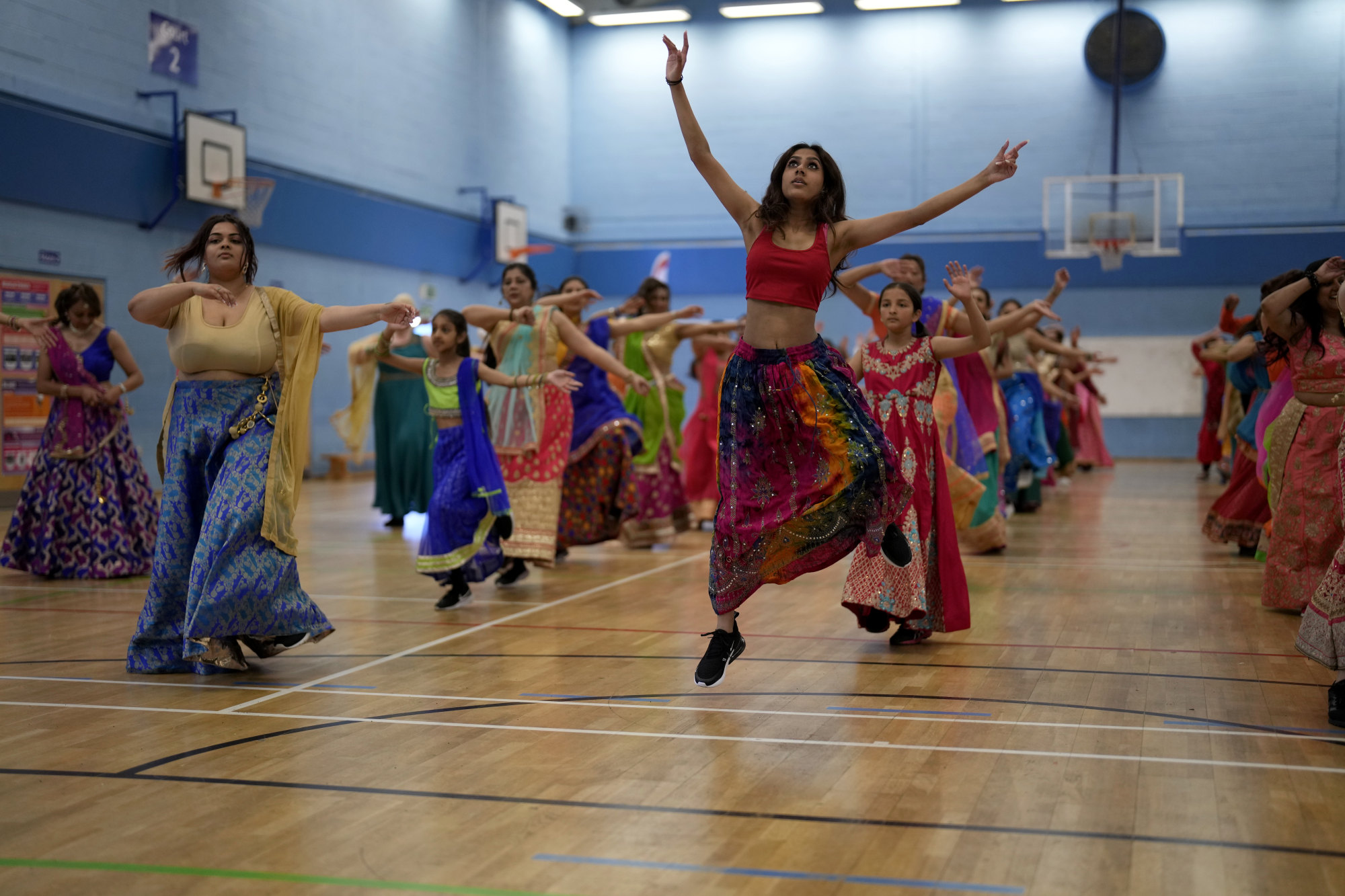
Queen Elizabeth’s Jubilee celebrations planned amid protests and anger from Windrush community
- Many colourful acts, involving 10,000 people from the UK and Commonwealth, will participate in a pageant in London on Sunday for the monarch’s Platinum Jubilee
- Meanwhile the Caribbean is pushing for a formal break with the monarchy and the colonial history it represents following the Windrush scandal
On Sunday, more than 200 performers in vibrant saris will dance to Bollywood tunes around a moving, six-metre-tall (20-foot-tall) version of the queen’s wedding cake, powered by a hidden electric vehicle. Its top tier, featuring a rendition of the queen’s beloved corgis holding aloft a crown, pops up and down on a hydraulic system.
The cake was designed by Ajay Chhabra, a second-generation British Indian with Fijian heritage. Dubbed “the 10,000-mile cake” because it is whipped up with sugar, dried fruit, rum and brandy from all corners of the Commonwealth, from South Africa to the Caribbean to Australia and the South Pacific.
Chhabra’s party is just one of many colourful acts to parade down the Mall to Buckingham Palace in London on Sunday, the finale of a busy four-day weekend of festivities marking the monarch’s Platinum Jubilee.
More than 10,000 people from across the UK and the Commonwealth have been involved in producing the pageant, which is expected to be seen by 1 billion people around the world.
“In a world where things are very temporary and polarised, I think there are few things that bring us together,” Chhabra said.

Not everybody shares Chhabra’s point of view. While the UK is celebrating the Jubilee with pageantry and parties, some in the Commonwealth are using the occasion to push for a formal break with the monarchy and the colonial history it represents.
The empire that Elizabeth was born into is long gone, but she still reigns far beyond Britain’s shores. She is head of state in 14 other nations, including Canada, Australia, Papua New Guinea and the Bahamas. Until recently it was 15 – Barbados cut ties with the monarchy in November, and several other Caribbean countries, including Jamaica, say they plan to follow suit.
Britain’s image of itself as a welcoming and diverse society has been battered by the revelation that hundreds, and maybe thousands, of people from the Caribbean who had lived legally in the UK for decades were denied housing, jobs or medical treatment – and in some cases deported – because they did not have the paperwork to prove their status.
The British government has apologised and agreed to pay compensation, but the Windrush scandal has caused deep anger, both in the UK and in the Caribbean.
A jubilee-year trip to Belize, Jamaica and the Bahamas in March by the queen’s grandson Prince William and his wife Kate, which was intended to strengthen ties, appears to have had the opposite effect.
Protesters in Jamaica demanded Britain pay reparations for slavery, and Prime Minister Andrew Holness politely told William that the country was “moving on,” a signal that it planned to become a republic. The next month, Antigua and Barbuda Prime Minister Gaston Browne told the queen’s son Prince Edward that his country, too, would one day remove the queen as head of state.
UK officials hope countries that become republics will remain in the Commonwealth, the 54-nation organisation made up largely of former British colonies, which has the queen as its ceremonial head.
As Commonwealth heads of government prepare to meet in Kigali, Rwanda, this month for a summit delayed by the coronavirus pandemic, some question whether the organisation can continue once the queen’s eldest son, Prince Charles, succeeds her.

